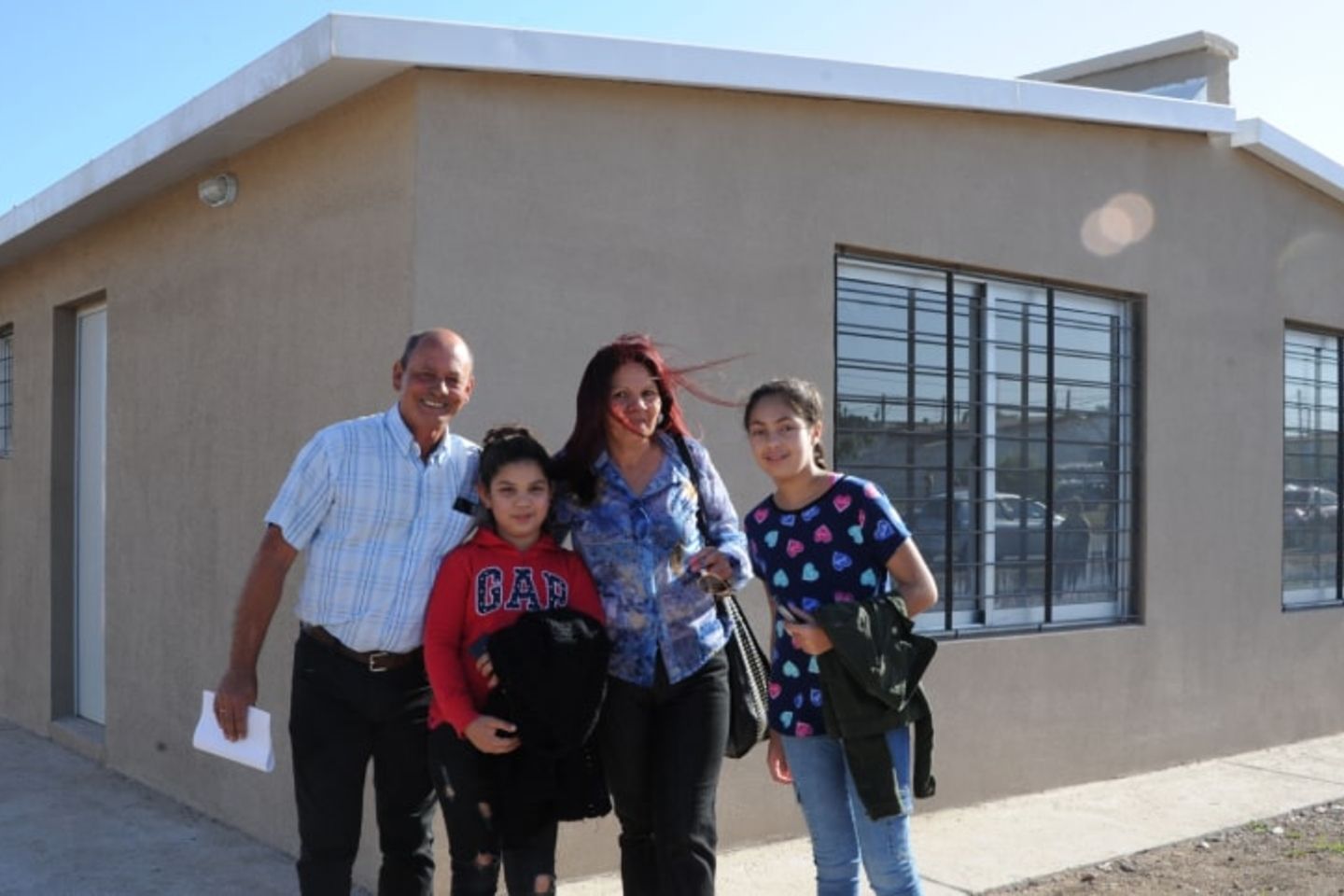
"Pando's train tracks were an imaginary limit. To the north was the area where the prostitutes, pimps and thieves gathered," says Giaana Canale about the history of her neighborhood. Canale is a blacksmith who lives in Pando, a city located 30 kilometers from Uruguay’s capital, Montevideo.
The neighborhood in the northern part of the city, Pando Norte, was born out of its forgotten spaces. In 1940, a racetrack was built in the area, but lasted only a few years. When it closed, the poorest residents of the city converted the old stables into houses. The neighborhood was sectioned over time and more families came. While some had land titles, others established homes in informal settlements. Pando Norte would grow into a community of 5800 people, of which more than a quarter lived in 5 informal settlements.
"I have lived here for 20 years with the promise of having something of my own, of eventually obtaining a title and paying my taxes. We always live with the fear that someone will come and evict us," says Susana Pintos, a resident of one of the settlements.
Las imágenes hablan por si solas. 38 familias hoy recibieron las llaves de sus nuevas casas Ya es un hecho, y quien...
Posted by Proyecto Pando Norte on Friday, September 28, 2018
Fear of eviction was paired with desperate living conditions. Many households lacked electricity, water, sanitation or adequate infrastructure. Health clinics and police departments were nowhere to be seen.
A COMMUNITY’S REBIRTH
But in 2013, the Uruguayan government invited the residents of Pando Norte to work together on the transformation of the neighborhood. The government analyzed the structural needs – from the lack of access to public infrastructure, such as paved roads and bus lines, to the limited access to social services, such as health and education. The residents held meetings to communicate their needs to the government. The actions resulted in an improvement plan that garnered the signatures of more than 70% of households.
In 2016, with the financial and technical support of the IDB, the public works began. The improvements included a new primary care health clinic, construction of new public spaces for sports and cultural and children's activities, and paved streets. Street lighting was installed and access to water and sewage connections was provided for all houses, and a facility for early childhood education was created. The project built 116 new homes for people living in precarious dwellings or those at risk of flooding, and it provided construction materials for those without adequate bathrooms or kitchens.
The neighborhood improvements also meant greater social cohesion. The central square, in particular, became of central value to the life of the community. Within it, a health center, a center for early childhood care and a regional center to combat violence against women were built – facilities which also brought residents of other neighborhoods to the formerly out-of-bounds Pando Norte. Moreover, those in informal settlements were helped to regularize their property titles so that they could better integrate into the city.
SOCIAL CAPITAL AND SUSTAINABILITY
The intervention in Pando Norte is part of a national neighborhood improvement strategy in Uruguay that the IDB has supported since 2008. Through three loans totaling $200 million, the Bank has assisted the Ministry of Housing, Territorial Planning and the Environment to improve the living conditions of 11,000 homes in slums.
"The most important thing about the program is that it generates a sense of community and social capital," says Verónica Adler, a housing and urban development specialist at the IDB in Uruguay. "In the end, the objective of these programs is for neighbors to feel they are a citizen, with their duties and rights." An additional social benefit of the program is that it contributes to gender equality by increasing women’s property ownership. About 75% of the 1,413 titles that have been issued in the former slums have been to women (both single women and women who are part of a couple).
The program is also at the forefront of combating environmental threats. The most recent neighborhood-improvement loan adheres to the commitments to combat climate change that Uruguay established in 2017. As part of the Paris Agreement, the country set the goal of reducing its CO2 emissions intensity by 25 percent relative to GDP by 2030, compared to 1990 values.
Video: Our Climate Change Division Chief and her vision of the IDB on sustainable infrastructure - swipe right! (in English)
View this post on InstagramA post shared by BID (@el_bid) on Apr 15, 2019 at 9:14am PDT
Among other measures, Uruguay is promoting the use of environmentally resilient and low-carbon basic services as well as the construction of affordable housing with better energy efficiency. Homes in flood-risk zones have been relocated and redesigned to be more resilient to the effects of climate change. The impact of the Neighborhood Improvement Program in Uruguay has been such that, recently, it was highlighted as a success story in the IDB's Sustainability Report 2018.
The Neighborhood Improvement Program has already completed works in 80 neighborhoods, according to its official website. However, for the residents of Pando Norte, the improvements are more than just another statistic. To them, the greatest achievement is the growing sense of dignity and closeness in the community.
"What I want is to live in a nice and healthy place — that our neighborhood has the basics so that we can live with dignity. That is all I ask – for us to be able to stay in this place and live with dignity," says Canale.
Download the IDB's 2018 Sustainability Report to read more about this and other success stories.
